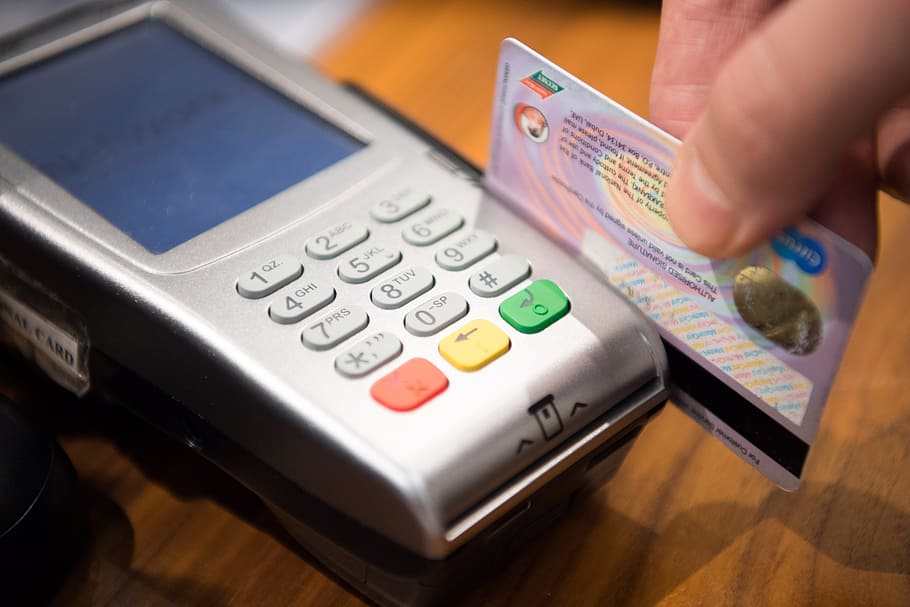Plastic money as an alternative is becoming mandatory for companies
Today 80 types of businesses and services must accept card payments. It’s a move aimed at fighting tax evasion, but smaller operators have appealed
As of today, more than 80 types of retail businesses, including doctors, lawyers and street vendors, must also accept plastic money to combat tax evasion, according to a Treasury Department decree in June.
No problems were expected as most companies these days accept plastic money – many who resisted were forced to because of the Covid pandemic – but certain sectors have already raised concerns and tried to be exempted from the regulation.
According to a statement by the Treasury Department, existing service and retail companies should have complied within three months from the date the decree was published; today.
These include law firms, accounting offices, hospitals, dentists and specialist companies for general and specialist professions, gastronomy, entertainment and leisure facilities and hairdressing salons.
In addition, auto repair shops, plumbers and air conditioners, and all retail businesses must meet the requirements.
Camping facilities, caterers and mobile canteens were also included.
In order to enforce the decree, companies and corporations must clearly inform customers that they are accepting card payments.
That doesn’t mean these companies can’t trade cash – but they must also offer the alternative of card payment.
Povek, the umbrella organization for artisans and shopkeepers, said the decision was a positive one but had also expressed some reservations.
“It is a positive measure in terms of tax evasion and transaction security,” said Povek boss Stephanos Koursaris. It will also help save time as entrepreneurs may not have to go to the bank often.
However, Povek would like companies that are not VAT liable to potentially be exempt from VAT in addition to certain minimum margin products sold in convenience stores.
Koursaris said they contacted the Treasury Department three months ago but received no response.
Spyros Xinaris, the chairman of one of two convenience store associations, said parliament voted on the law last year without asking for their opinion.
He said that most outlets in their industry already accept plastic money, so installing a terminal is not the problem.
Your problem is that the decree requires the acceptance of a card regardless of the amount to be paid.
That would be a problem for them when it comes to cigarettes, newspapers, and phone cards that are priced at fixed prices and the profit margin is minimal.
According to Xinaris, a shopkeeper currently pays 17.5 euros per week to the press distribution list and makes a profit of around 15 euros, although it depends on the number of newspapers sold.
“They will force kiosk owners to break the law,” he said. Most kiosks currently refuse to accept cards for cigarettes, newspapers and phone cards, set a minimum purchase amount, or require buyers to pay the processing fee in order to keep their small profit.
Xinaris said they want kiosks to be allowed to refuse card payments when the margin is low.
The fees depend on the card type, the banks and the processing company.
The decree has pushed the demand for POS terminals beyond the onslaught of the pandemic and the need for contactless payment.
RCB, the only acquirer bank in Cyprus offering payment processing solutions, told the Sunday Mail that “there is indeed an increased interest in RCB Bank’s digital products and services, particularly in relation to merchant acquiring services for accepting card payments from corporate customers , Dealers and others â€. Specialists with regard to the new regulation. “
The bank said it had seen a general turn towards digital payments in the aftermath of the pandemic, as the need to stay at home and interact remotely.
Fees and costs depend on the size of the company, its turnover, whether it is already an RCB customer, etc.
RCB offers bespoke payment solutions and bespoke packages with unique features and services for POS or e-commerce purposes.
Lawyers, widely regarded by the public as the worst tax evaders, have to install POS terminals together with doctors.
A company from Limassol stated that it already had a terminal, although only between 10 and 20 percent of its sales were made with card payments.
“It’s not worth it, but okay,” said one of the partners.
Currently they are being billed 1.95 percent by the processor, but in light of the decree, the bar association has made a deal with the largest processor JCC at a rate of 0.85 percent.
However, a defiant street vendor said he will not get one and does not expect authorities to take serious action against those who do not.
However, Treasury Department Tax Officer Irini Ioannou said they did not plan to start inspections immediately, noting that failure to comply could result in a fine of up to € 2,000.
Offenders could get away with a 50 percent fine if they can prove they have installed a POS in the meantime, she said. However, in order for appeals to be heard, a company must first pay the fine.
If they win the appeal, the fine will be refunded. Otherwise you can call the administrative court at any time.
However, the dish is not where convenience store owners go. After contacting the chairman of the House of Representatives Finance Committee, Xinaris hopes that they will soon have the opportunity to voice their complaints in the right place and possibly to reverse some provisions of the decree.

